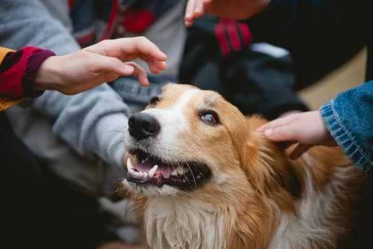
Introduction
Welcoming a new puppy into your home is an exhilarating experience filled with joy, playfulness, and new challenges. At Puptown Houston, we’re passionate about helping you successfully navigate the initial stages of puppy training, ensuring you build a strong foundation for a lasting relationship. Our approach is designed to make training an enjoyable and rewarding journey for both you and your puppy.
The Benefits of Early Puppy Training
Initiating training at a young age is vital for instilling good habits and preventing potential behavioral issues. Effective early training sets the stage for a well-behaved adult dog and enriches the bond between you and your puppy by fostering mutual trust and understanding.
Proven Puppy Training Strategies
Adopt Positive Reinforcement Techniques
Positive reinforcement—rewarding your puppy for good behavior with treats, praise, or play—reinforces desired behaviors and fosters a positive association with training.
Establish Consistent Routines
Creating a consistent schedule for feeding, potty breaks, and playtime helps your puppy feel secure and aids in quicker adaptation to household routines and rules.
Focus on Socialization
Early socialization is critical. Expose your puppy to a variety of people, pets, and environments to boost their confidence and ensure they grow into a well-adjusted dog.
Keep Training Sessions Engaging and Brief
Puppies have short attention spans. Limit training sessions to about 5-10 minutes and hold several sessions throughout the day to keep your puppy engaged and enthusiastic.
Practice Patience and Persistence
Patience is a cornerstone of effective training. Consistency in commands and your approach to discipline will help your puppy understand expectations and learn more effectively.
Insights into Puppy Behavior
Research in animal behavior has shown that puppies learn best in a loving, supportive environment free from fear and punishment. Techniques based on positive reinforcement not only teach practical skills but also help develop a secure attachment between puppies and their owners.
Puppy Training FAQs
When is the best time to start puppy training?
The best time to start is as soon as your puppy comes home, generally around 8 to 10 weeks of age.
What are the first commands to teach a puppy?
Focus on basics such as “sit,” “stay,” “come,” and “leave it.” These commands are crucial for safety and daily interactions.
How can I deal with puppy nipping and biting?
Encourage gentle play by providing suitable chew toys and immediately redirecting your puppy’s biting from your hands or clothes to these toys.
Conclusion
At Puptown Houston, we understand that puppy training is more than just teaching commands—it’s about nurturing a lifelong friendship. Our training methods are designed to ensure that you and your puppy enjoy a productive, joyful, and enriching experience together. By implementing these foundational training strategies, you will set the stage for a rewarding relationship filled with trust and mutual respect.
